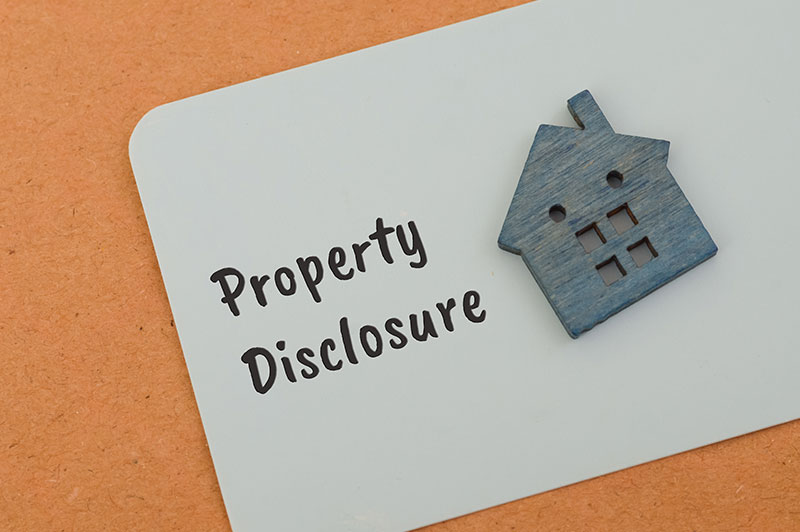What You Must Include in a Seller’s Disclosure in Texas

Understanding seller’s disclosure in Texas helps you avoid legal pitfalls and build buyer trust from the start.
Selling your home in Texas? Before listing, make sure you don’t overlook one crucial document: the seller’s disclosure. This isn’t just another piece of paperwork—it’s a legally required form that protects both you and the buyer.
Knowing what to include and what to exclude in the seller’s disclosure can help you avoid legal trouble and ensure your sale proceeds smoothly from the start. Let’s go over everything you need to know about seller’s disclosures and how they apply to College Station, TX real estate.
WHAT IS A SELLER’S DISCLOSURE, AND WHY IS IT IMPORTANT?
In Texas, the law requires sellers to provide buyers with a seller’s disclosure. This document, officially Texas Property Code Sec. 5.008, describes your property’s condition at the time of the sale. It allows buyers to make more informed decisions and protects sellers from potential lawsuits arising from nondisclosure.
Think of it as a complete summary of your home’s systems, structure, and history. If a buyer finds major issues after closing that you didn’t disclose (like a roof leak that you fixed but never mentioned), they may have grounds for legal action. That’s why keeping your word is not only good practice but also a legal requirement.
The Texas Real Estate Commission (TREC) offers a standard disclosure form for sellers. Your real estate agent can guide you through the process, but ultimately, responsibility for completing it correctly is yours.
WHO NEEDS TO PROVIDE A SELLER’S DISCLOSURE?
Residential sellers in Texas are required to complete a disclosure form. This includes:
- Traditional home sales
- FSBO (For Sale by Owner) properties
- Estate sales (unless exempt)
However, there are some exemptions. For example, disclosures are not needed for:
- Newly built homes that have never been occupied
- Foreclosure or trustee sales
- Transfers between spouses or close relatives
- Court-ordered sales
If you’re unsure whether you’re exempt, ask your listing agent or consult your attorney.
WHAT MUST BE INCLUDED?
Here’s what a seller’s disclosure in Texas generally covers:
- Structural and mechanical details
This includes information about your foundation, roof, plumbing, HVAC, electrical systems, and more. Have you done any repairs? Replacements? Any known defects? Every detail must be disclosed.
- Water damage or leaks
Buyers are especially wary of signs of water damage. If your home has ever experienced a roof leak, plumbing issue, or flooding—even if it was professionally repaired—you need to disclose it.
- Termite or pest issues
If you’ve had termite treatments or pest infestations before, include those details. You may not need to mention it, but not doing so could be a deal-breaker.
- Environmental hazards
Mold, lead-based paint (especially in homes built before 1978), asbestos, or other dangerous materials must be disclosed.
- Legal issues or encumbrances
Are there any liens on the property? Ongoing boundary disputes with neighbors? These should also be detailed in the disclosure.
- Improvements and repairs
It’s not just about problems—buyers want to know what upgrades you’ve made. Mentioning recent improvements like a new AC unit or energy-efficient windows can work to your advantage.
HOW DETAILED SHOULD YOU BE?
Any unclear information is best disclosed. Include even those details that seem minor, such as a previous roof leak that hasn’t repeated. Transparency is the key, not perfection.
Buyers value honesty, and in Texas, full disclosure can help you avoid future legal issues. In case something broke or reappeared after closing, you could be held responsible.
WHAT HAPPENS IF YOU DON’T DISCLOSE CORRECTLY?
Failing to complete a seller’s disclosure in Texas properly can cause legal headaches. If the buyer believes you intentionally concealed a material defect, they may sue you for damages or try to undo the sale.
Texas courts favor transparency. Even if you didn’t mean to deceive, the cost of a court battle isn’t something most sellers want to face.
HOW THIS AFFECTS SELLERS IN COLLEGE STATION
Clear, comprehensive disclosures can make your listing stand out in the College Station, TX real estate market. Buyers, especially those relocating for work or attending Texas A&M, appreciate sellers who are upfront about the home’s history.
SELL YOUR COLLEGE STATION, TEXAS HOME WITH BHHS CALIBER REALTY
Disclosure isn’t just a box to check in Texas—it’s a tool that builds buyer trust and protects your interests. Do it right, and you’ll be well on your way to a more confident and successful sale.
Need help navigating your next move? The experts at Berkshire Hathaway HomeServices Caliber Realty know the ins and outs of College Station, TX real estate. Contact the team to discuss how to sell your home fast and for the best price.
Call 979.694.8844 or send an email here to learn more about BHHS Caliber Realty’s services.

